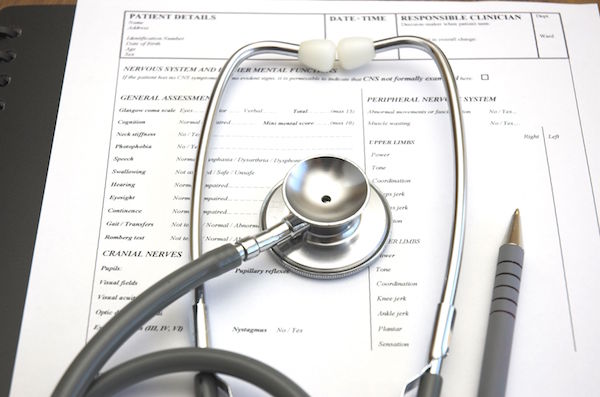
THURSDAY, May 16 (HealthDay News) — Women in their 40s and 50s who suffer from depression are almost twice as likely to have a stroke as women who aren’t depressed, according to a large, long-running Australian study.
This is not the first study to link depression with an increased risk for stroke, in both men and women. Exactly how depression is associated with stroke is unclear, as is whether treating it reduces the risk, experts say.
“Although the absolute risk of stroke is low in mid-aged women, depression does appear to have a large adverse effect on stroke risk in this age group,” said lead researcher Caroline Jackson, an epidemiologist in the School of Population Health at the University of Queensland.
“Our findings, however, suggest that depression may be a stronger risk factor for stroke in mid-aged women than was previously thought,” she said.
Despite the growing body of evidence on depression and risk of stroke, depression is generally not included in guidelines for primary stroke prevention, which appears to be an important omission that should be addressed, Jackson noted.
The report was published May 16 in the journal Stroke.
One expert said this latest finding adds to the growing pile of evidence on the link.
“This large study among Australian women adds further evidence supporting the association between depression and stroke risk,” said Dr. Ralph Sacco, chairman of neurology at the University of Miami Miller School of Medicine.
Other studies have also demonstrated the effects of depression on stroke risk, he added. “Although we are not clear about the mechanisms, depression is frequent and needs to be more readily recognized and appropriately treated,” Sacco said.
To see how much depression influenced the risk of stroke, Jackson and her colleague Gita Mishra, a professor of life course epidemiology at the University of Queensland, collected data on more than 10,000 women aged 47 to 52 who took part in the Australian Longitudinal Study on Women’s Health.
Women in the survey answered questions about both physical and mental health every three years from 1998 to 2010.
Among these women, about 24 percent said they suffered from depression. Over the study period 177 women had a stroke for the first time.
Analysis by Jackson and Mishra found depressed women were 2.4 times more likely to have a stroke than women who weren’t depressed.
After eliminating some of the other factors that increase the risk of stroke, depressed women still were 1.9 times more likely to have a stroke, compared to women who were not depressed, they found.
Risk factors included: age; socioeconomic status; lifestyle habits such as smoking, alcohol and physical activity; and high blood pressure, heart disease, being overweight and diabetes.
Jackson noted that in absolute terms the risk for women in this age group having a stroke is still small.
In the study, about 1.5 percent of all women had a stroke, and it increased to slightly more than 2 percent among women with depression, she noted.
While the study tied depression to increased stroke risk, it did not establish a cause-and-effect relationship.
According to Jackson, this is the first large study that looked at the association between depression and stroke in younger middle-aged women.
In the United States, another long-running study on women’s health — the Nurses’ Health Study — found a 30 percent higher risk of stroke among depressed women. The average age of women in that study, however, was 14 years older, Jackson said.
The compelling evidence of an association between depression and stroke, “reinforce the need for adequate targeted prevention, detection and control of poor mental health among mid-aged women,” Jackson said.
And since the reasons for association aren’t known, “we need to carry out further research to identify the mechanism by which depression affects stroke risk, since this may have implications for development of future treatment of depression and stroke prevention strategies,” she said.
More information
To learn more about stroke, visit the National Stroke Association.

